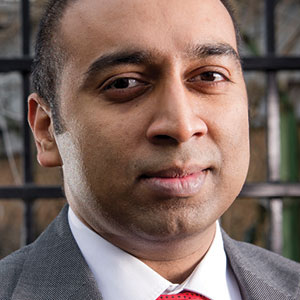If you had asked a GP delegate at the LMCs Conference in 2014 or 2015 what the word ‘Brexit’ meant, they would have stared back blankly, or even with a degree of fear, concerned no doubt that it was a new set of government targets that were about to be unleashed on general practice. Yet now it’s almost inconceivable that there was ever a time when this term didn’t exist, as it dominates the election campaign and the news every day. This is justifiable, given its seismic repercussions – and general practice will certainly not escape, which is why motions about this issue have found their way onto this year’s LMC agenda.
All of the motions focus on a key, worrying uncertainty: what will happen to the thousands of doctors who work in the NHS under freedom of movement regulations? Over 30,000 doctors who qualified from Europe are currently working in the UK. It is an undeniable fact that European doctors contribute significantly to the NHS and that without them primary care would soon grind to a halt. Already the whole debate about ‘Brexit’ and the referendum has resulted in a significant drop in the number of doctors coming over from Europe to work in the NHS, as uncertainty about future freedom of movement regulations continues.
How serious are the implications, in reality?
In my view, the short answer is, very. A large scale survey conducted by the BMA shortly after the referendum demonstrated a plunge in morale within this community of doctors. It found that European doctors felt substantially less appreciated by the UK Government in light of the EU referendum result. They also felt significantly less committed to working in the UK. On a scale of one to ten, the average rating on commitment to our health service dropped from nine before the referendum to six out of 10, after Vote Leave’s victory.
The picture emerging is that this key group of doctors are showing signs of ending their attachment to this country. This comes at exactly the time that overall the UK is going through an unprecedented crisis in its GP workforce. I have a glut of figures I could produce to back this up, but let’s take a couple of very recent examples. A study in April from Exeter Medical School involving 2,000 GPs showed two in five in the South West were considering quitting the NHS in the next five years. Almost at the same time, NHS Digital’s latest figures in March showed the number of full time GPs is falling as many decide to leave the profession or retire earlier. Many GPs are clearly voting with their feet because of the daily struggle of trying to provide enough appointments to patients without the resources or support they need. Taken together, these reports show once more the enormous crisis facing general practice as our supply of GPs dries up. To lose overseas doctors at this point would be a complete disaster.
This brings us to the nub of the LMC debates – which call for clarity as to what Brexit will mean for this crucial part of our workforce: at the moment politicians on all sides appear hesitant to nail their colours to the mast. I certainly appreciate there is a long road ahead of negotiations and trade-offs before we finally leave the EU, but we cannot allow this dithering to go on. At a time when regions like Lincolnshire, Essex and Humberside are actively trying to fill the GP vacancies by encouraging European GPs to come and work in these regions, the fact that politicians cannot commit to allowing them to remain in the UK is very worrying indeed.
With the NHS at breaking point, we need politicians to take the plunge and make a commitment on this vital issue: it is not acceptable for them to silently look at the floor while doctors and the NHS are effectively left in limbo.
Dr Krishna Kasaraneni is the BMA GP Committee lead on workforce issues

















